Knitters create thousands of poppies to mark Remembrance Day
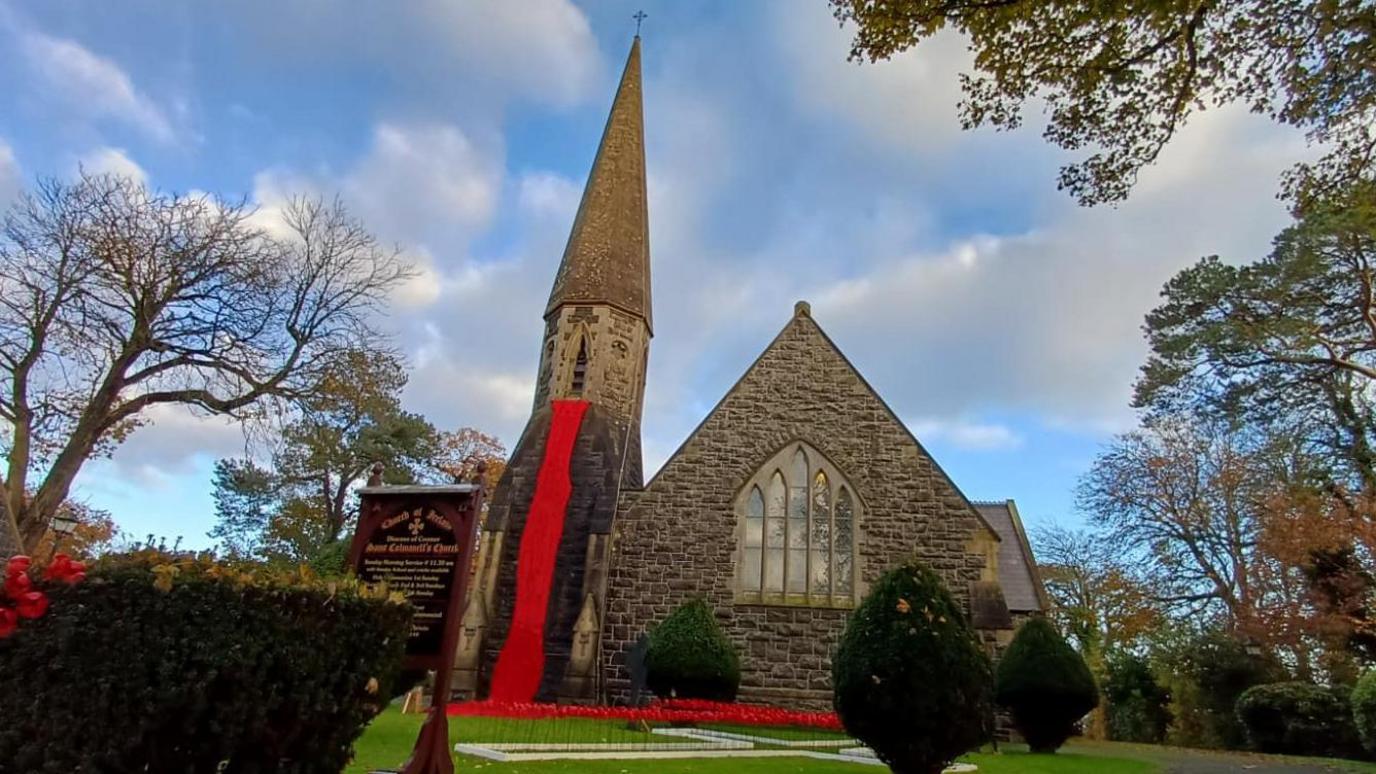
A cascade of poppies are draped from the bell tower of St Colmanell's Church in Ahoghill for a Remembrance exhibition
- Published
Cascades of hand-knitted poppies and displays of treasured uniforms, diaries and medals are among the ways two villages in Northern Ireland are marking Remembrance Day.
St Colmanell's in Ahoghill, County Antrim, and St Matthew's in Richhill, County Armagh, have both transformed their churches to remember those who fought and died at war.
Remembrance Day, which is also known as Armistice Day, commemorates the end of World War One.
"It's important to remember those men and women who gave so much," said Rosemary Frayne, who helped curate the exhibition at St Colmanell's.
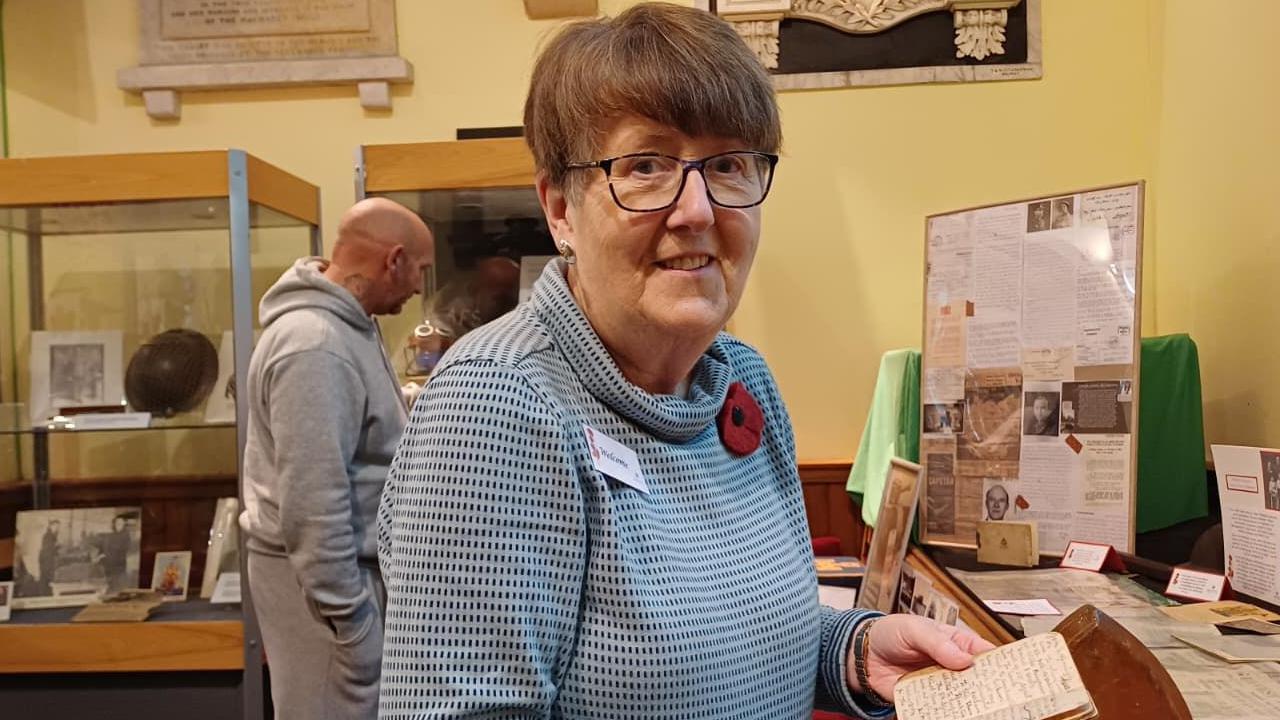
Rosemary Frayne was one of the Remembrance Day exhibition organisers at St Colmanell's
A pencil that a World War One private sharpened with his teeth is just one of the stories preserved in a diary on display at a church in Ahoghill.
A cascade of poppies is also draped over the bell tower of the church.
Anne McGonigle Kee's great grandfather fought in World War One.
Two diaries he wrote, with the aforementioned pencil, while in the trenches in France were thought to be lost.
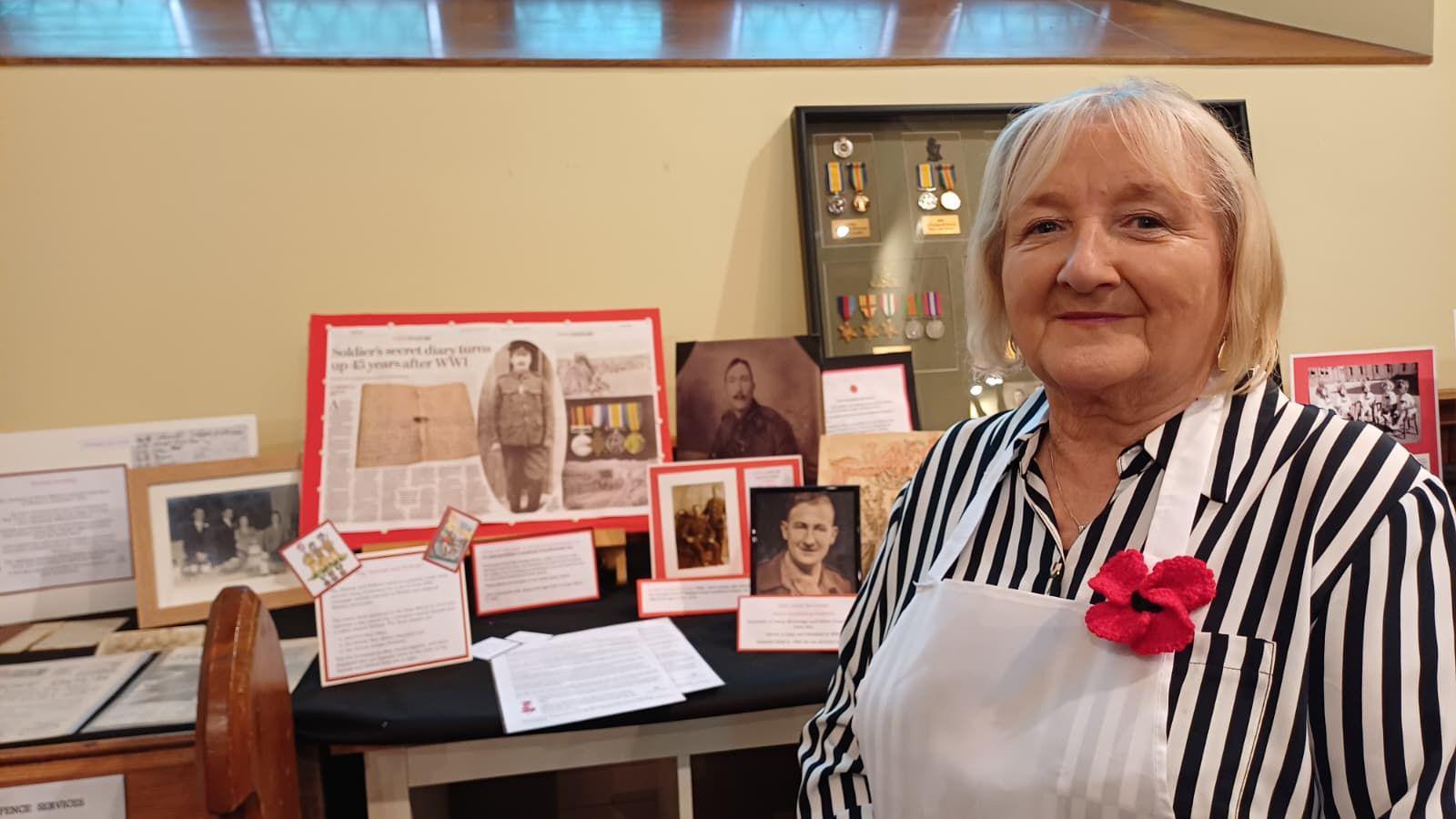
Anne McGonigle Kee says reading her great grandfather's diaries makes her feel close to him
"A lady in England had the diaries and she saw they were by John McGonigle from Tobermore, so she put it in the local paper over here," said Anne.
"My great aunt Polly McGonigle saw this in the paper and thought, 'That's my dad' so that's how she got the diaries.
"It's just wonderful that they came to light after being missing for so many years."
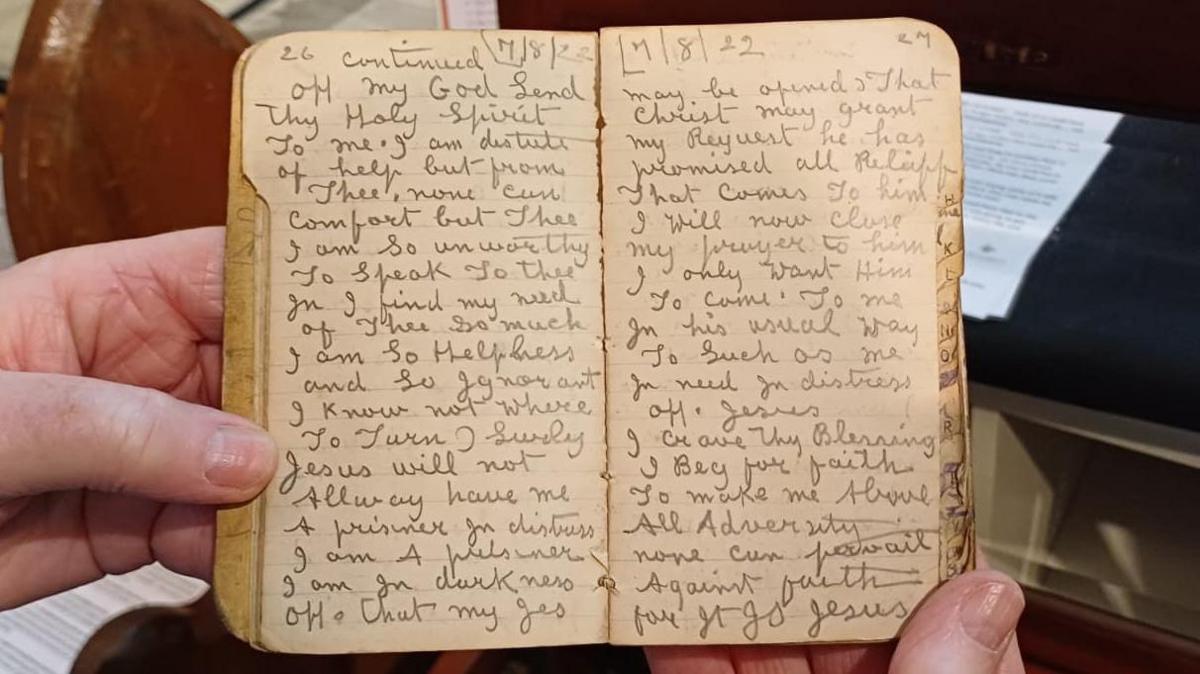
The diary of Private John McGonigle was written with a pencil he sharpened "with his teeth"
Anne was a baby when her great grandfather died but she said reading his diaries makes her feel "very close" to him.
"He just puts all of his thoughts and feelings into these journals," she told BBC News NI.
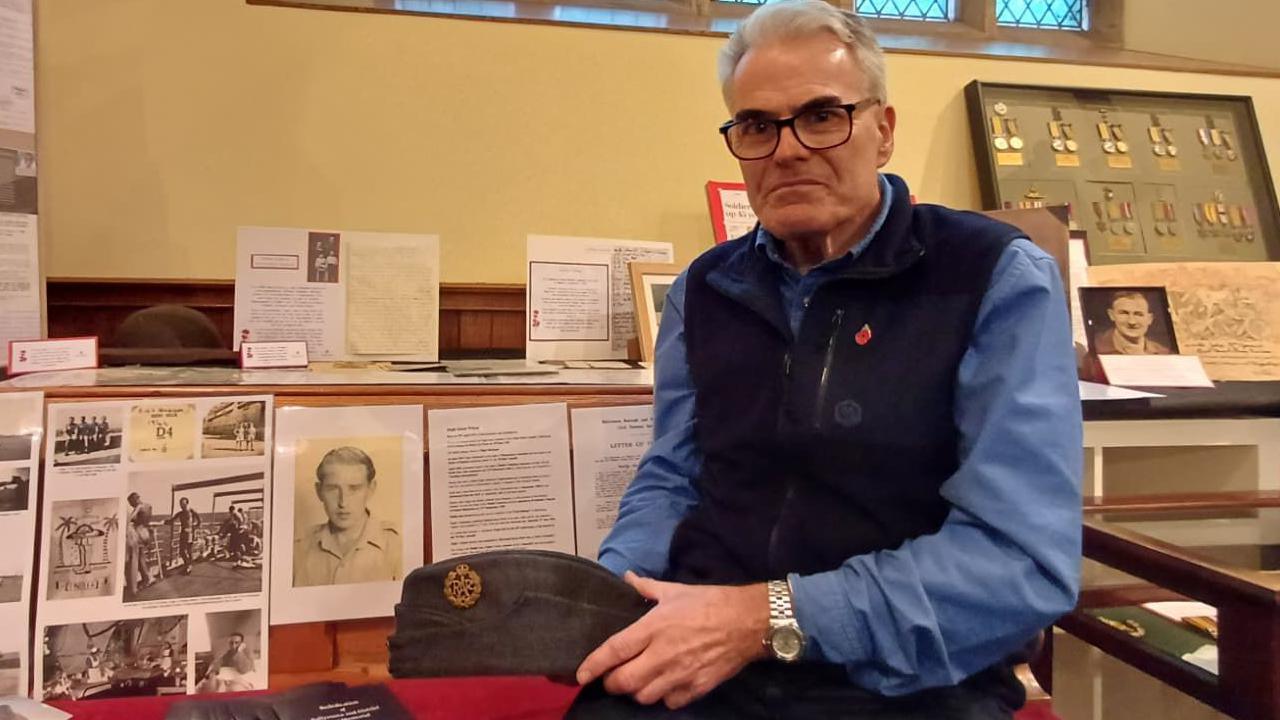
Richard Wilson, who's holding his father's RAF cap, says he remembers "running around" wearing it as a boy before he realised its value
Richard Wilson's grandfather, great-grandfather and uncle were all called Thomas Cameron and some of their belongings are on display, including his grandfather's uniform from World War One.
His father signed up to the Royal Air Force (RAF) in June 1944.
He was in the south of England preparing aircraft for D-Day and later served in south east Asia as ground crew and a radio operator.
Some of the photographs he took of planes, including a Spitfire, are on display.
"He didn't speak of it, I found these pictures concealed probably after he died," Richard said.
The RAF cap of his father Hugh James Wilson is also on display.
"As a child, I remember running around with this RAF cap on.
"As the years go on, you realise that it becomes more and more valuable."
Richard's mother also volunteered in the civil defence during the war.
He said he is "very proud of all the family".
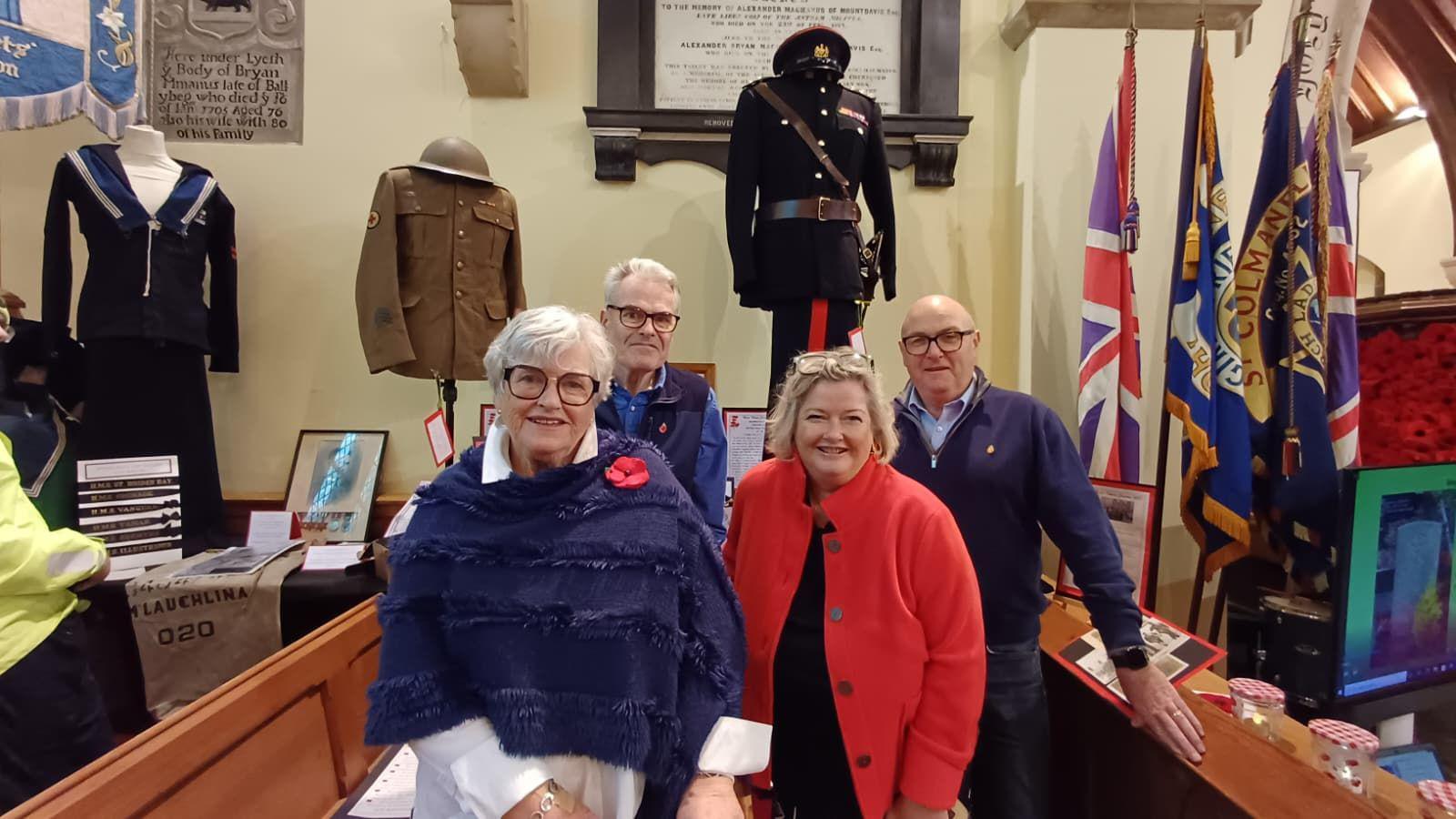
Murial Harkness, (front, left) Roslyn Galashan (front, right), Richard Wilson, (back, left), Ian Cameron (back, right)
For Roslyn Galashan, it was an "honour" to create a display about her great uncle, great-grandfather and great-great-grandfather who all served their country.
"I have been full of admiration and awe of the things I have found about them," she said.
Meanwhile in Richhill, a 100ft (30m) long cascade of more than 7,000 hand-knitted poppies can be seen throughout the village as it hangs from the top of St Matthew's Church tower.
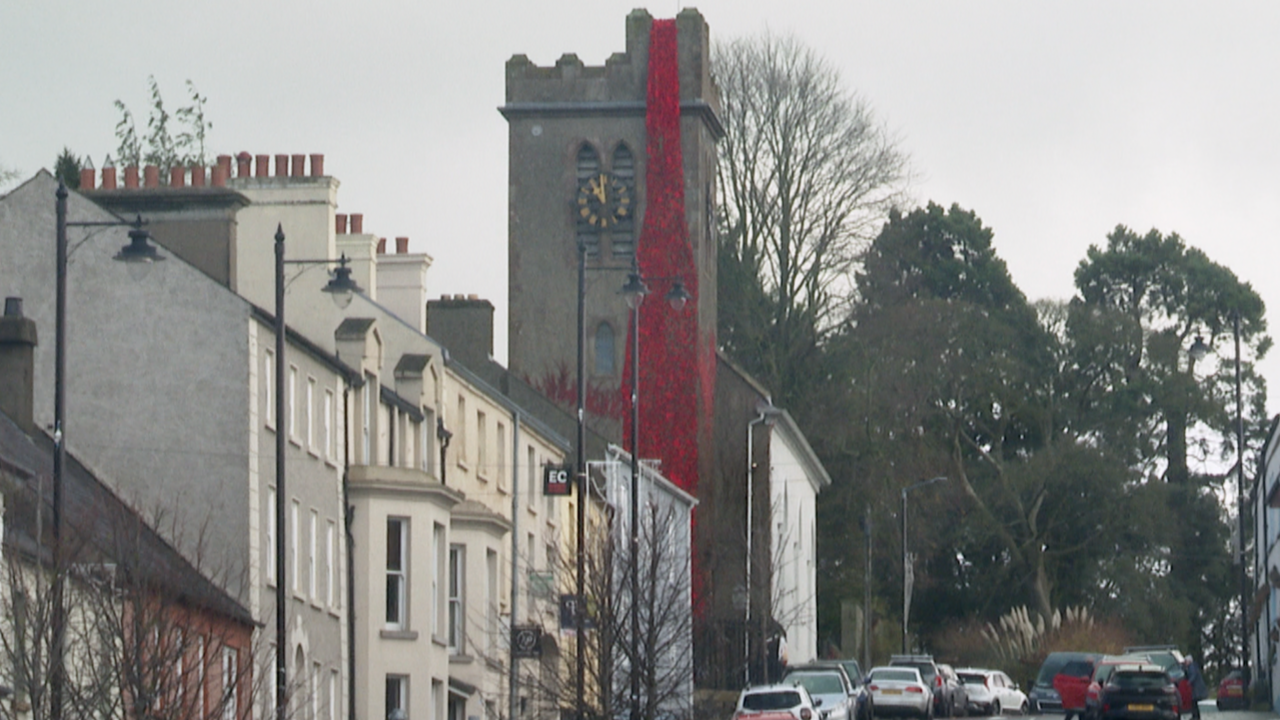
A 100ft long cascade of more than 7,000 hand knitted poppies are on display at St Matthew's Church in Richhill
It is the calling card of a special Remembrance festival taking place this weekend that also includes church services, an exhibition, a stories in song concert and a Royal British Legion parade.
BBC News NI spoke to Karl Buckley at the top of the tower.
To get there, he had to climb up a series of ladders through increasingly small hatches in the bell tower and onto the flat roof.
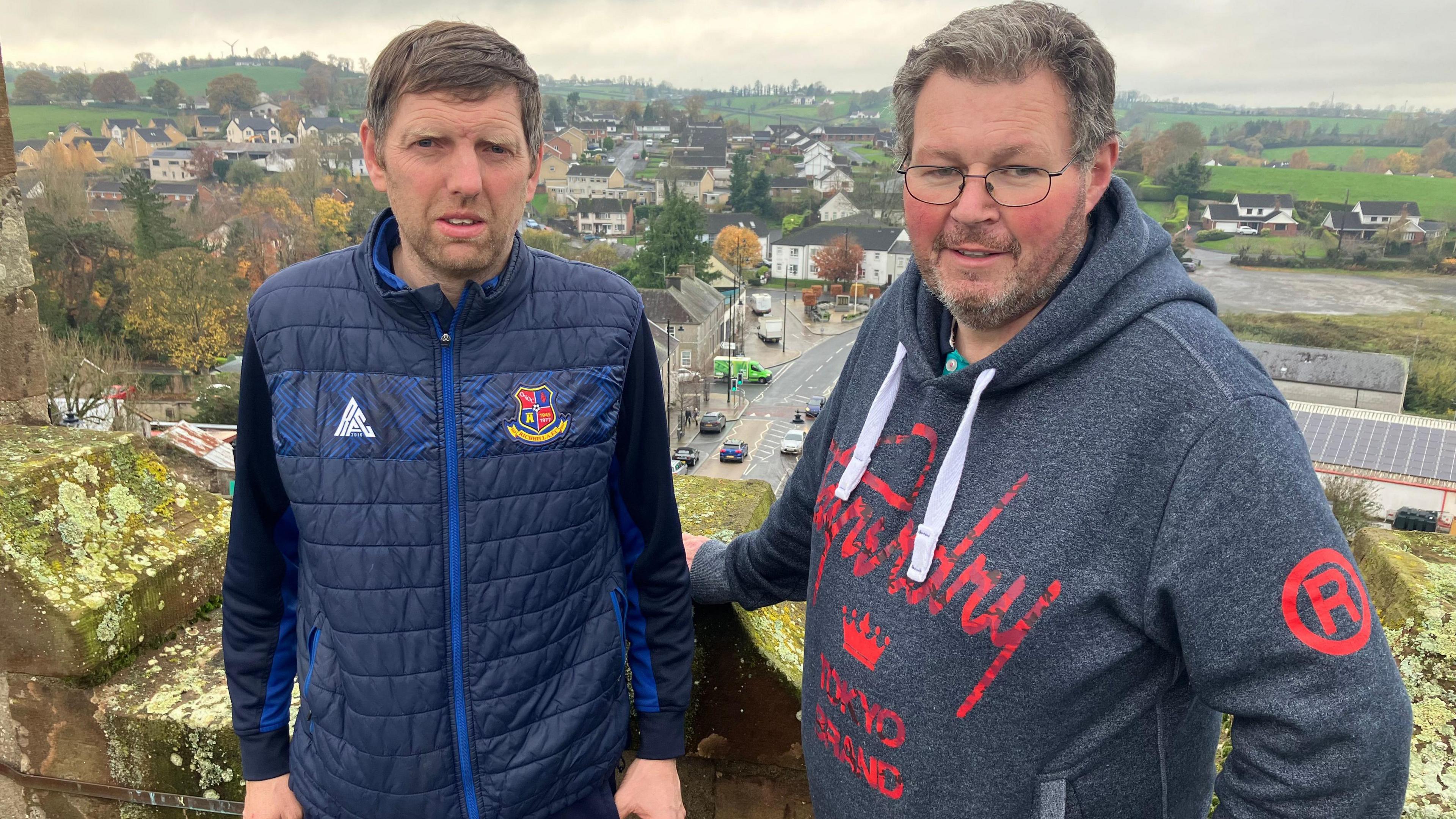
Gary McCoo and Karl Buckley standing on top of the tower at the church
"We've put the net from the top of the tower to the bottom," Karl said.
"It took days to attach the poppies to the net and last Saturday we got it up."
The festival was the idea of Linda Pillow who wrote to all the local churches to see if anyone would like to knit poppies or share any stories for the Remembrance display in church.
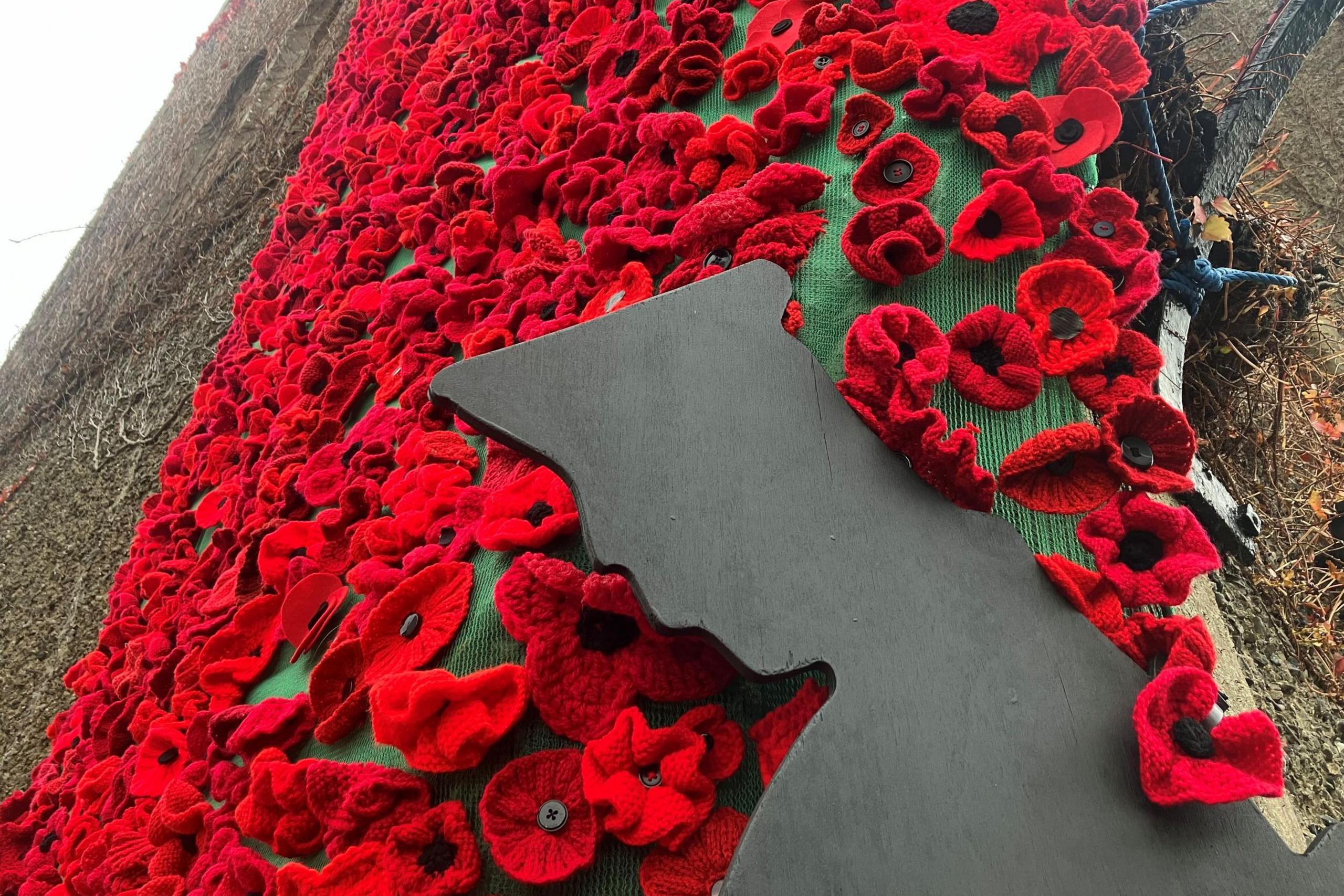
The 7700 poppies displayed on St Matthew's were knitted by people in the local area
"I think there are 7,700 (poppies) on the side of the church and they were knitted by people in Richhill, Loughgall, Hamiltonsbawn," she said.
"They've been knitting for almost a year and then last week we opened the hall and the fun was marvellous as people renewed acquaintances and we sewed for four days.
"We asked people if they were willing to tell a story, families who have had people in the war. My own father (Desmond Kelly MBE) is up there."
She said it is a privilege to be able to remember loved ones in the way they are doing in Richhill.
Remembrance Sunday
Ceremonies take place on 11 November, the day that World War One ended, with the country falling silent at 11:00 GMT, for a period of reflection.
Remembrance Sunday is the nearest Sunday to that date.